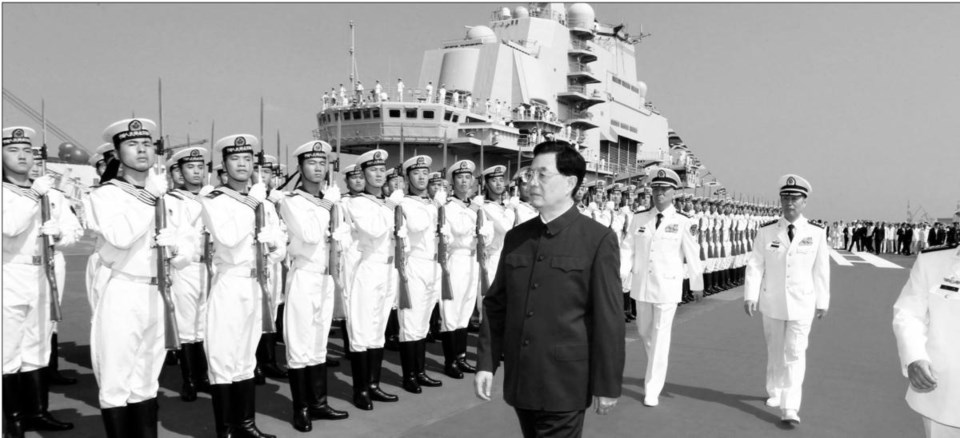China sent its first aircraft carrier into formal service on Tuesday amid a tense maritime dispute with Japan in a show of force that could worry its neighbours.
China's Ministry of Defence said the newly named Liaoning aircraft carrier would "raise the overall operational strength of the Chinese navy" and help Beijing to "effectively protect national sovereignty, security and development interests."
In fact, the aircraft carrier, refitted from a ship bought from Ukraine, will have a limited role, mostly for training and testing ahead of the possible launch of China's first domestically built carriers after 2015, analysts say.
The Pentagon played down the event, with spokesman George Little telling a briefing that the United States was monitoring China's development of its military but noted, "This wasn't a particular surprise."
China cast the formal handing over of the carrier to its navy - attended by President Hu Jintao and Premier Wen Jiabao - as a triumphant show of national strength at a time of tensions with Japan over islands claimed by both sides.
"The smooth commissioning of the first aircraft carrier has important and profound meaning for modernizing our navy and for enhancing national defensive power and the country's overall strength," Xinhua news agency cited Wen as saying at the commissioning ceremony in the northern port of Dalian.
Sino-Japanese relations deteriorated sharply this month after Japan bought the East China Sea islands, called Senkaku in Japan and Diaoyu in China, from their private owner, sparking anti-Japan protests across China.
"China will never tolerate any bilateral actions by Japan that harm Chinese territorial sovereignty," Vice Foreign Minister Zhang Zhijun told his Japanese counterpart on Tuesday as the two met in a bid to ease tensions.
"Japan must banish illusions, undertake searching reflection and use concrete actions to amend its errors, returning to the consensus and understandings reached between our two countries' leaders."
Japanese diplomats gathered in New York for the United Nations General Assembly said their government's purchase of the islands from its private owners was designed to contain the controversy.
"The Japanese government has communicated and explained this intention to [China]. However, we have the current situation," said Naoki Saiki, deputy press secretary of Japan's Foreign Ministry.
Saiki did not indicate whether Tuesday's viceministerial talks with China made concrete progress, but she said, "The important thing is that both sides did agree on the continuation of contacts and communications with each other."



